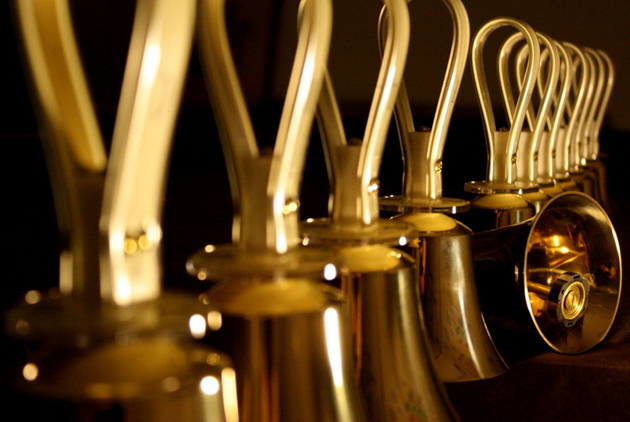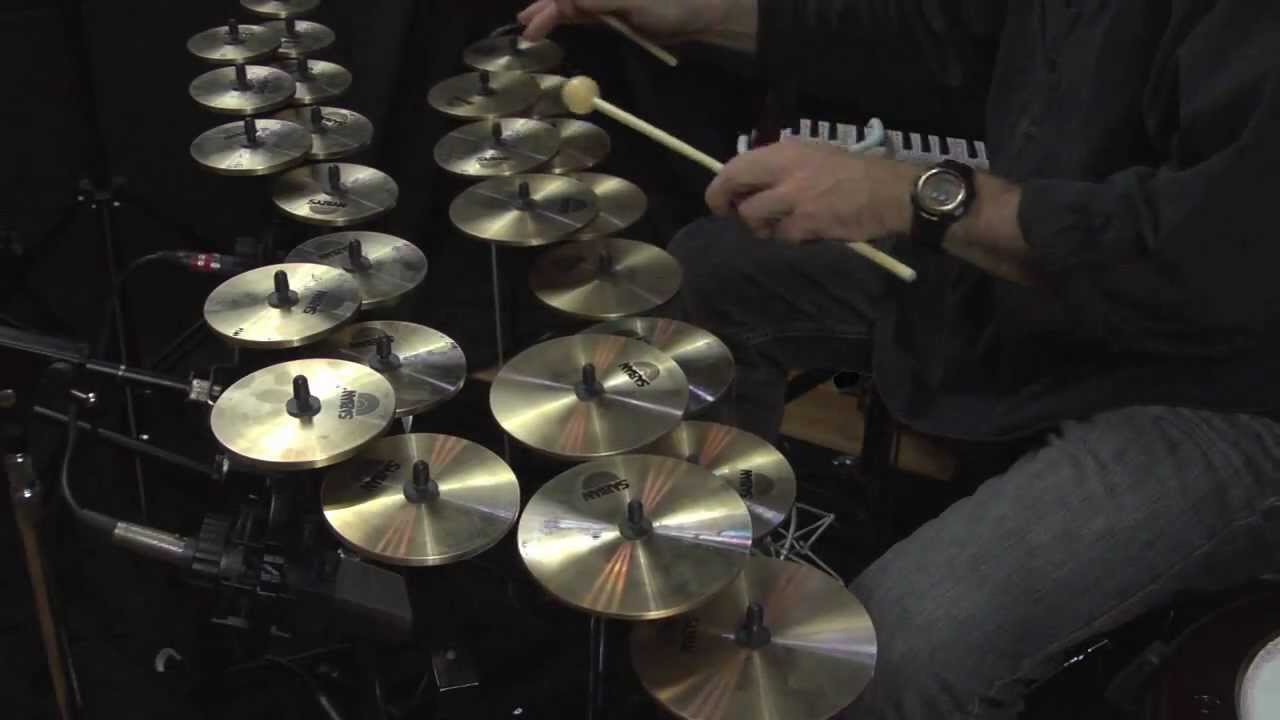![]() A
Clear Midnight
A
Clear Midnight
For SATB Choir and Piano, with Handbells, Crotales,
Prayer Stones, and the *Kendrick Bell (5:45)
*(This bell can be obtained from
the "Sounds
of Solace" website. Alternately, a handbell or another
bell-like sound will suffice.... sounding at G# above middle-C)
Gladde Music Publcations (#201501)
$2.15
Evocative images often inspire colors, timbres, and
even ethereal sounds in the "inner ear" of the
composer's imagination. The
composer gives this background;
"One night, years ago, I was driving with my
wife and sons back from our first trip to the Grand Canyon - toward
Phoenix. Out in the middle of nowhere... removed from all city
lights... we stopped to gaze upon an unbelievably
starry sky!
The spectacular shooting stars were more
awe-inspiring than any fireworks we had ever seen! We gazed
upon this celestial show for a long while, my young sons sitting on
the warm hood of our car."
"A Clear Midnight" seeks to build a musical soundscape of evocative sonorities, reminiscent of that luminous night near the Grand Canyon. Those memories are vividly rekindled in this serene poem by Walt Whitman, one of America's most beloved and unique homegrown poets.
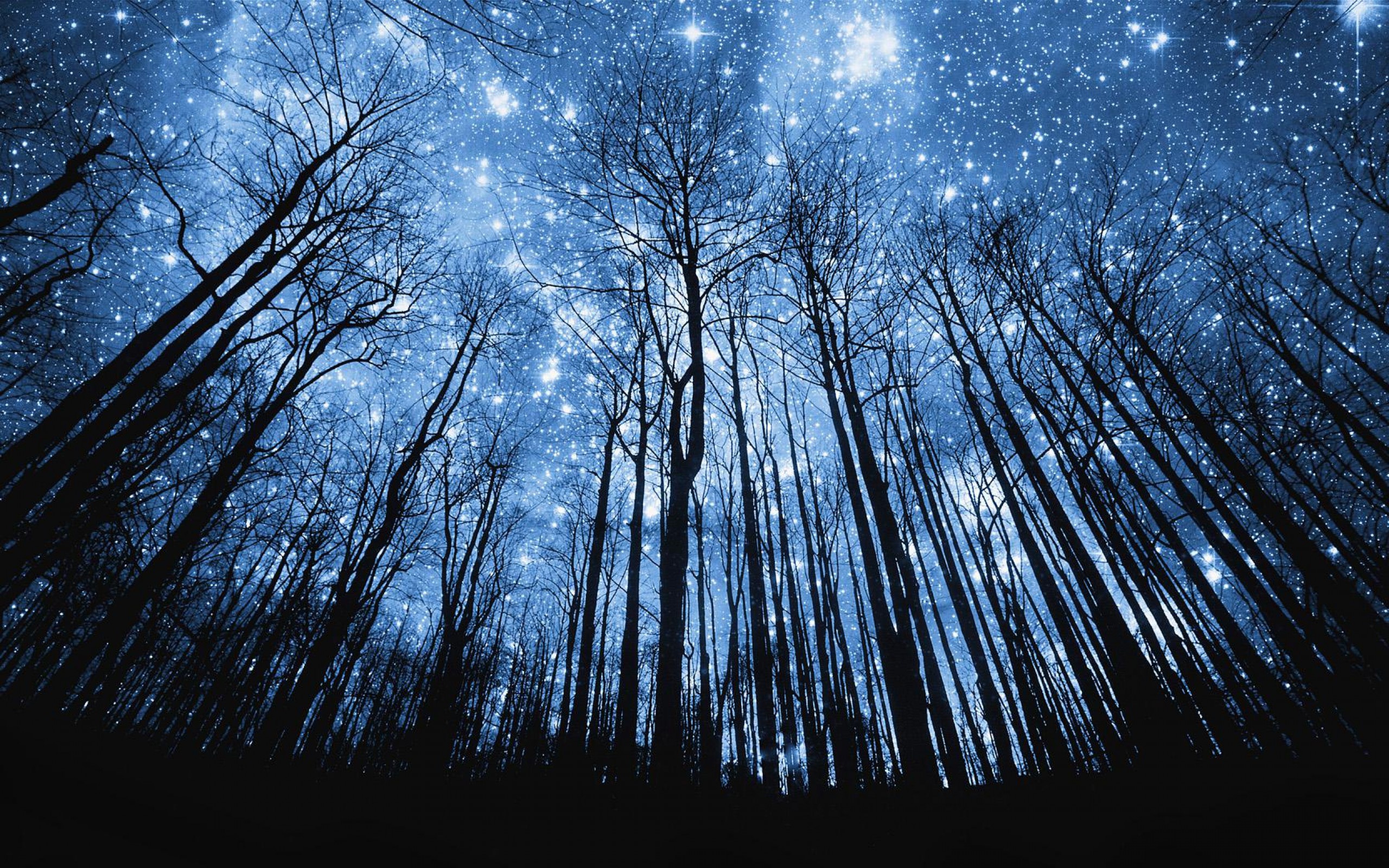
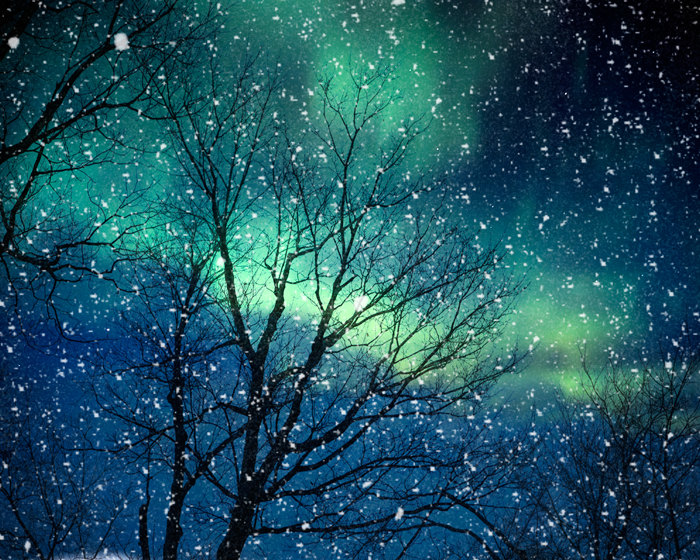

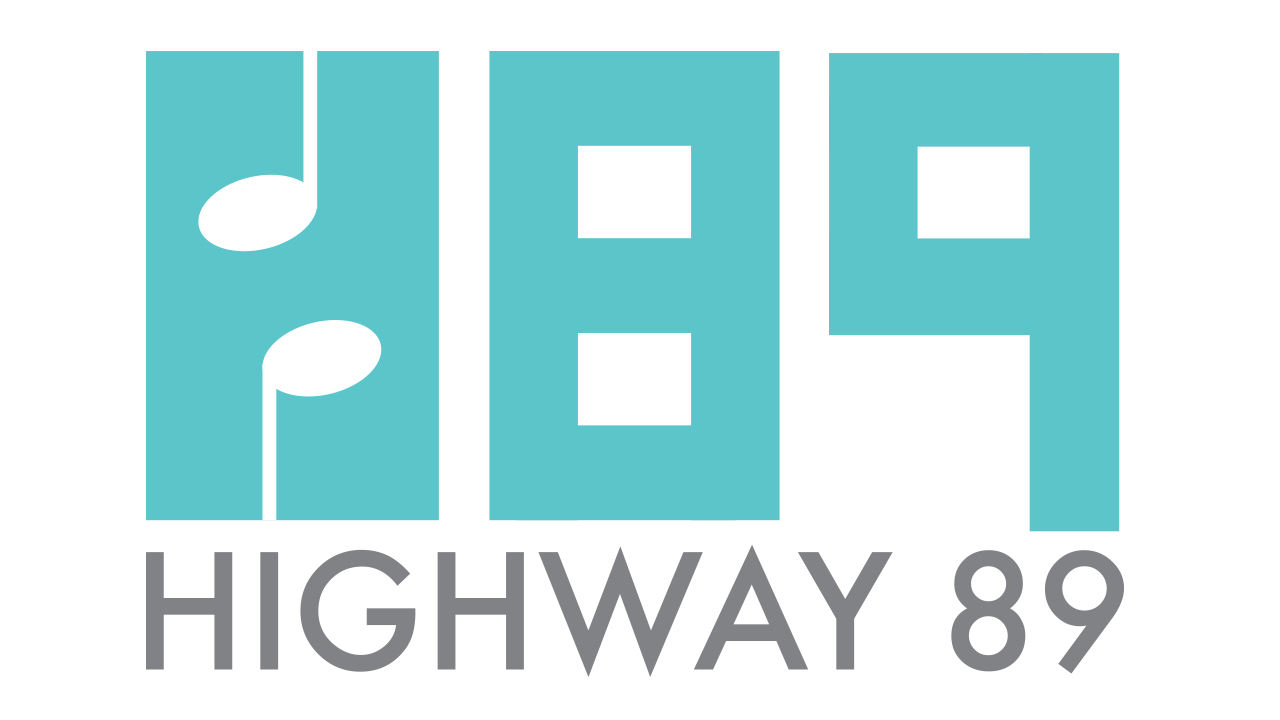
.jpg)
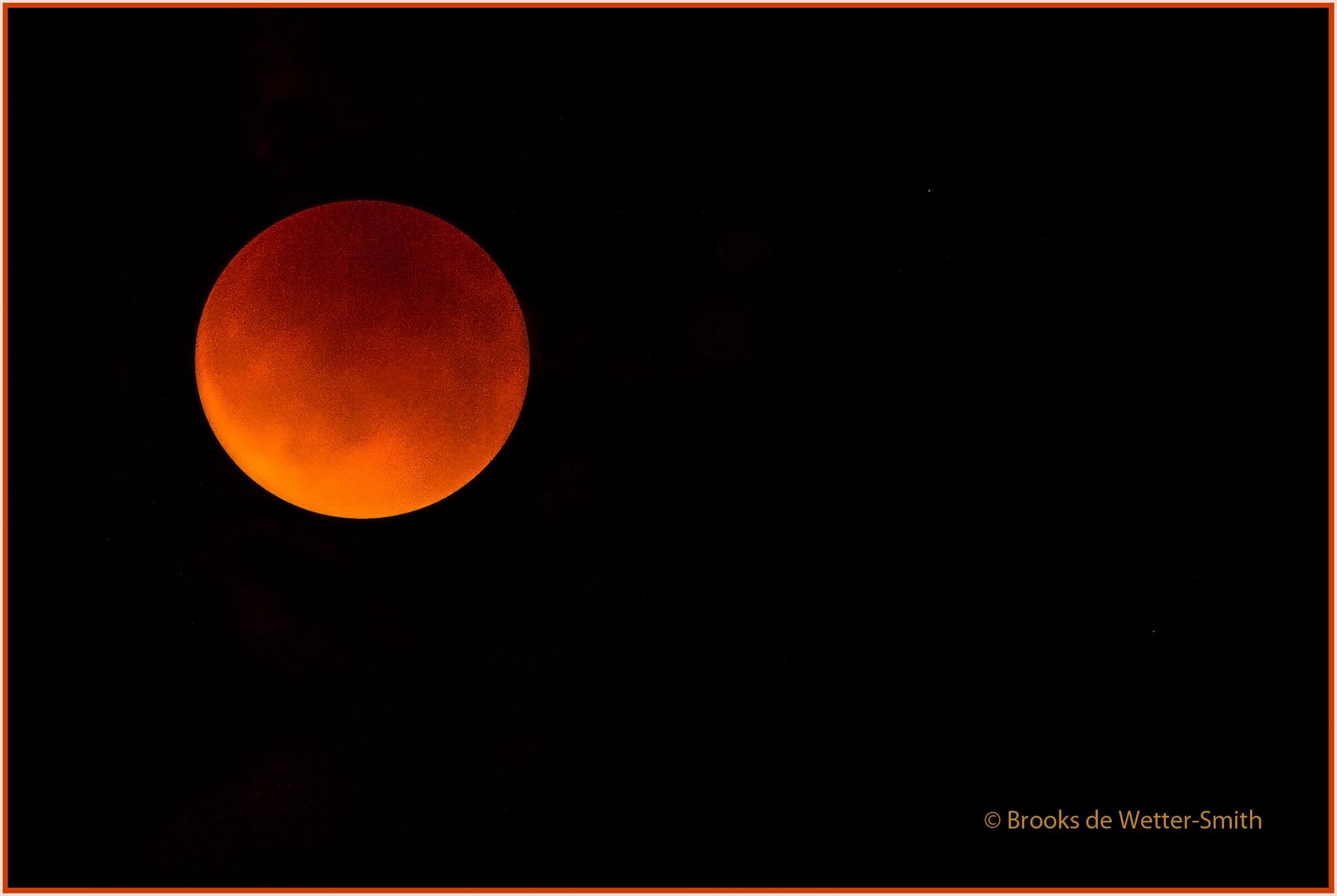
.png)
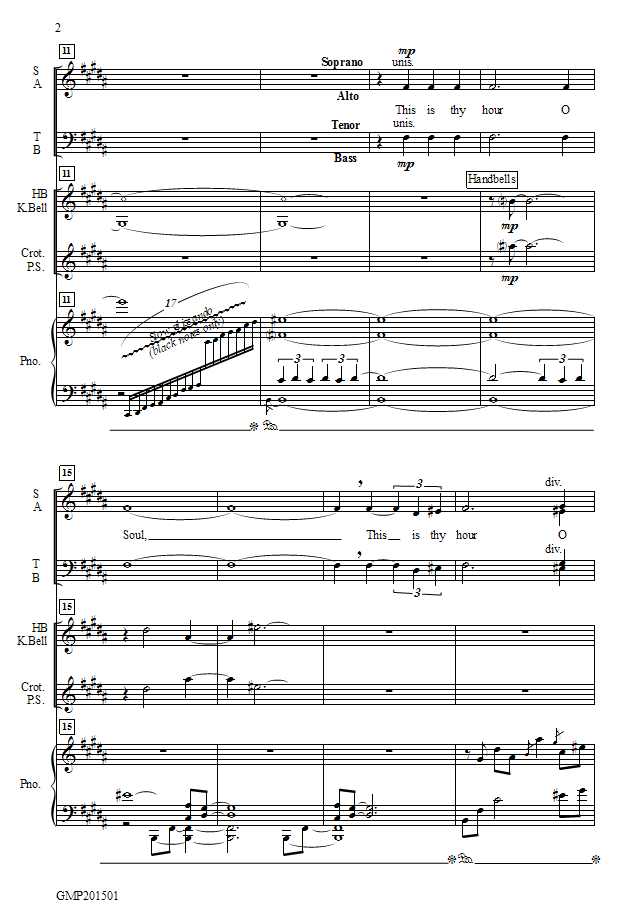
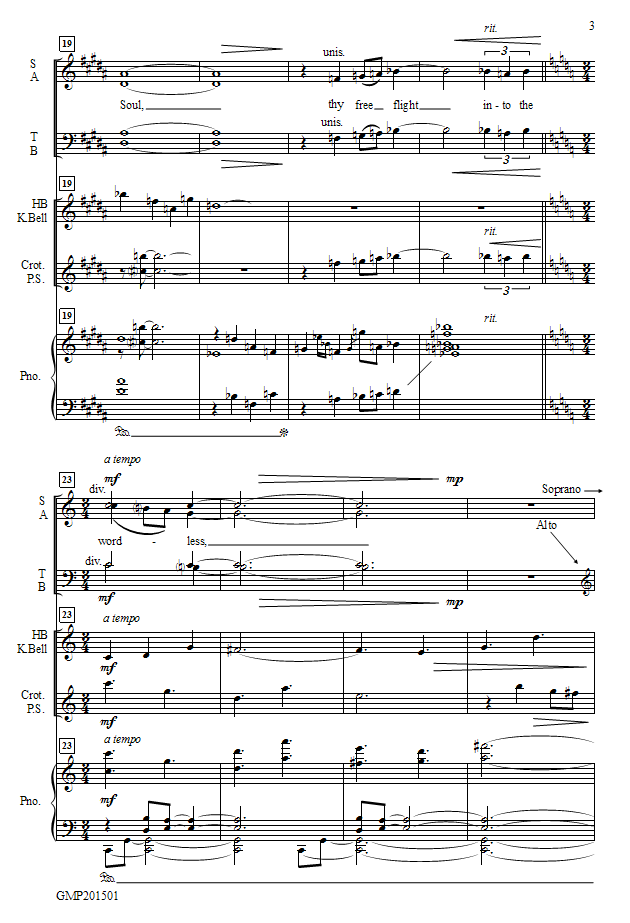
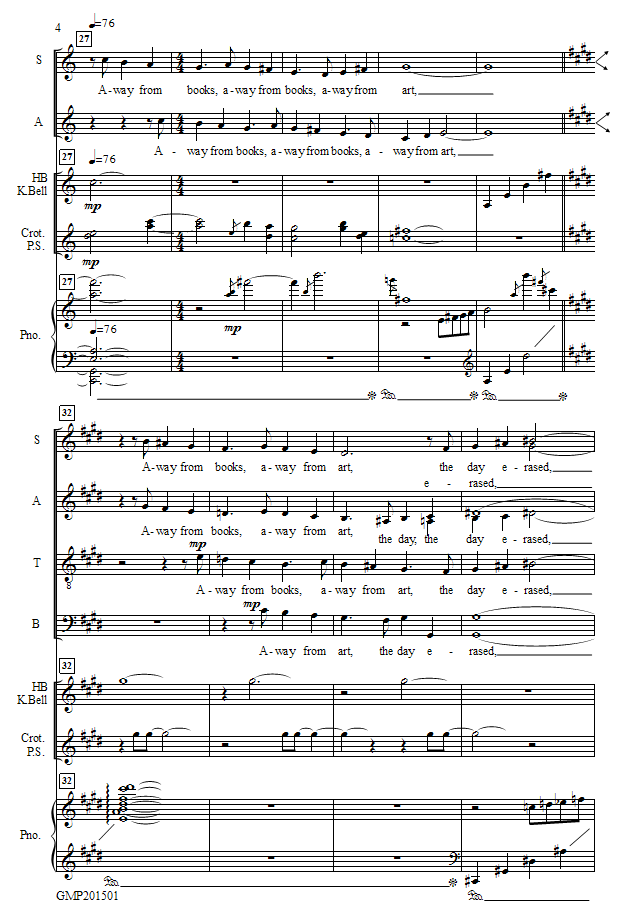
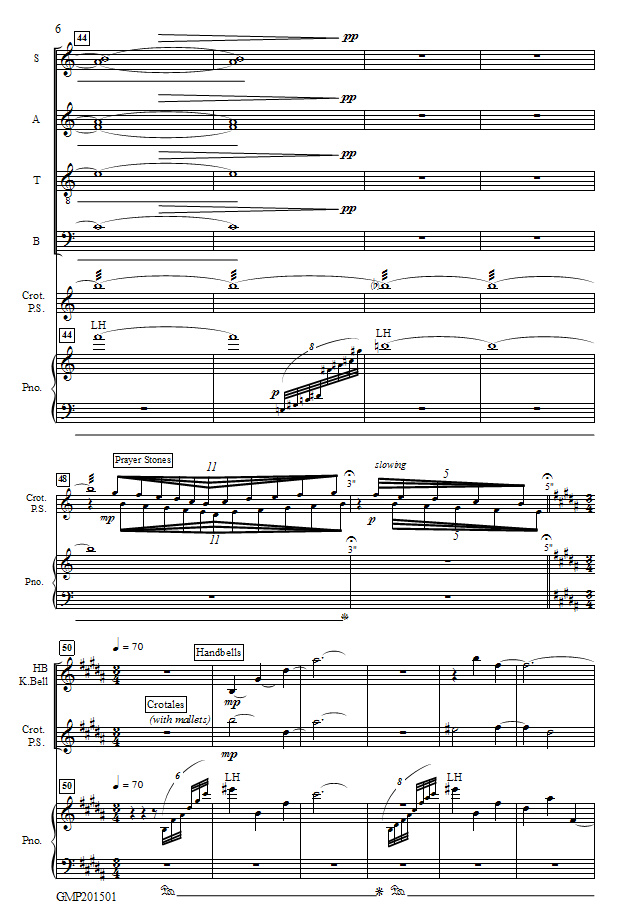
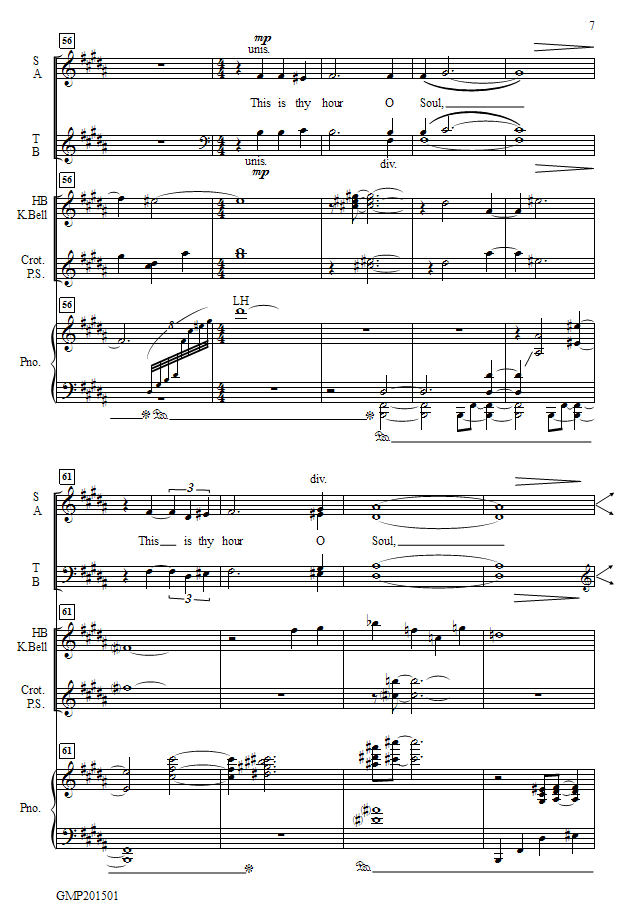
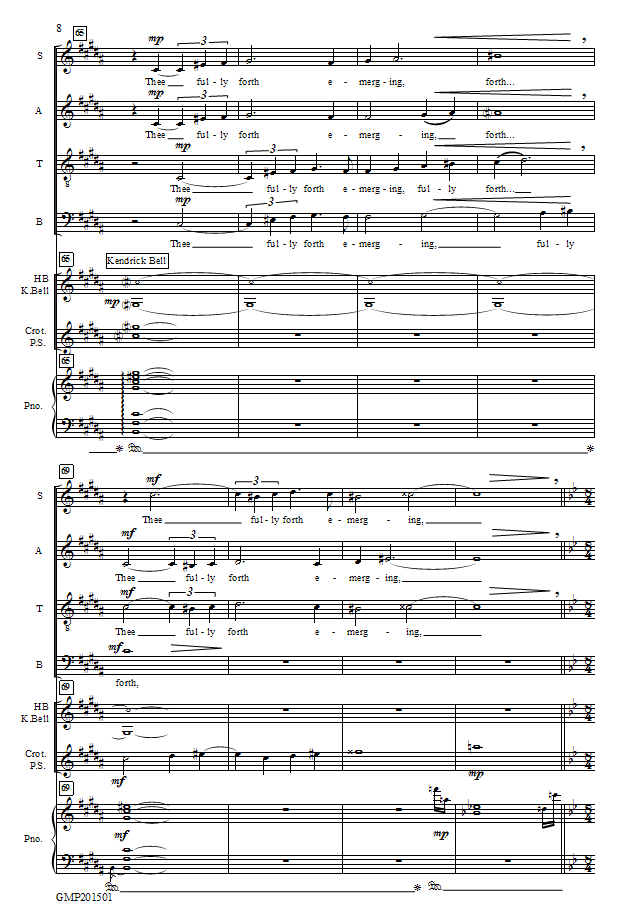
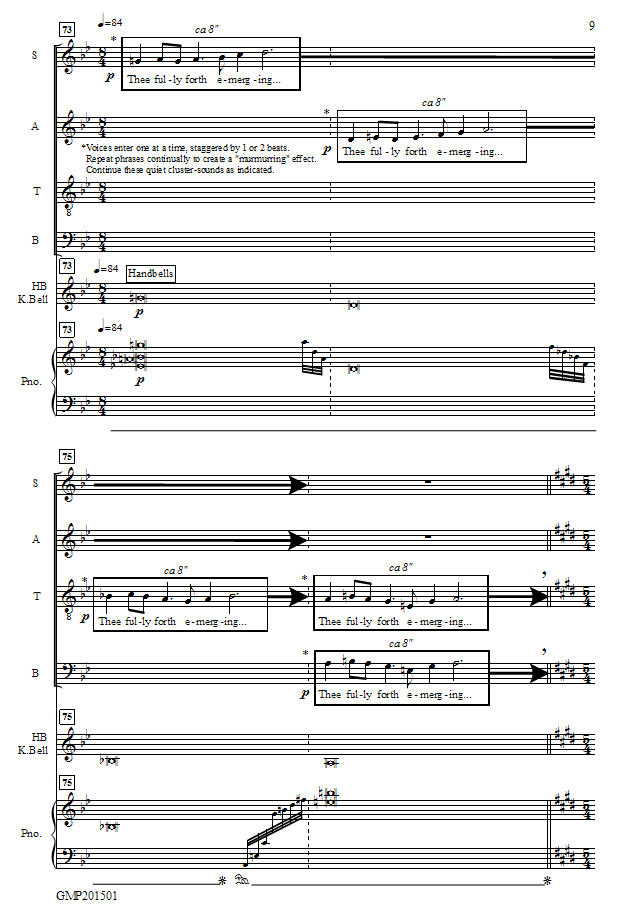
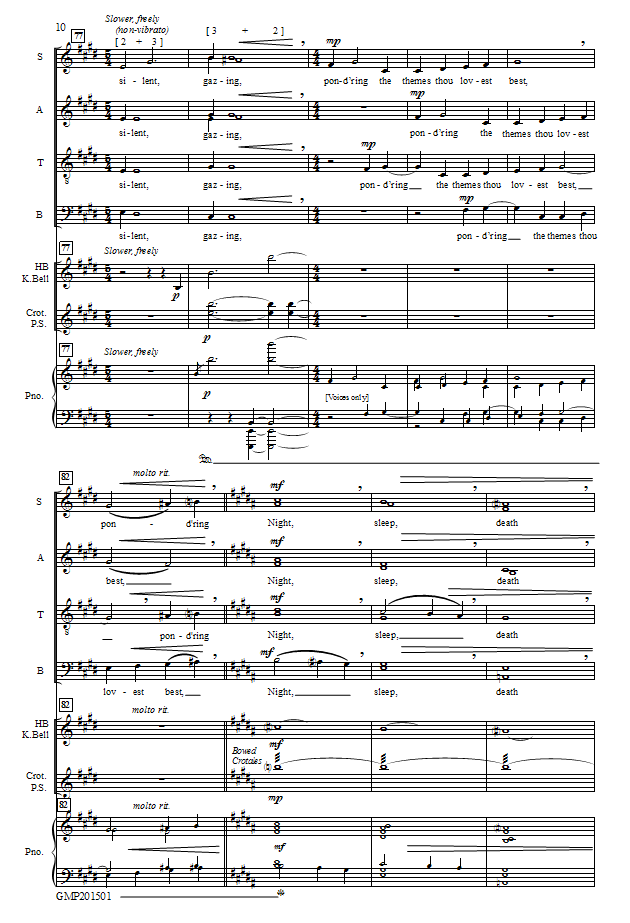
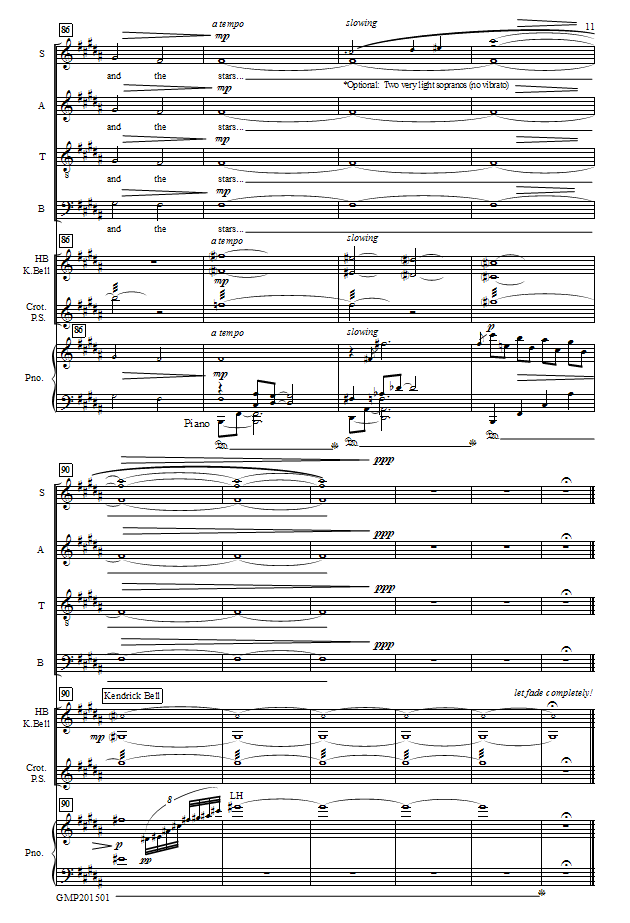
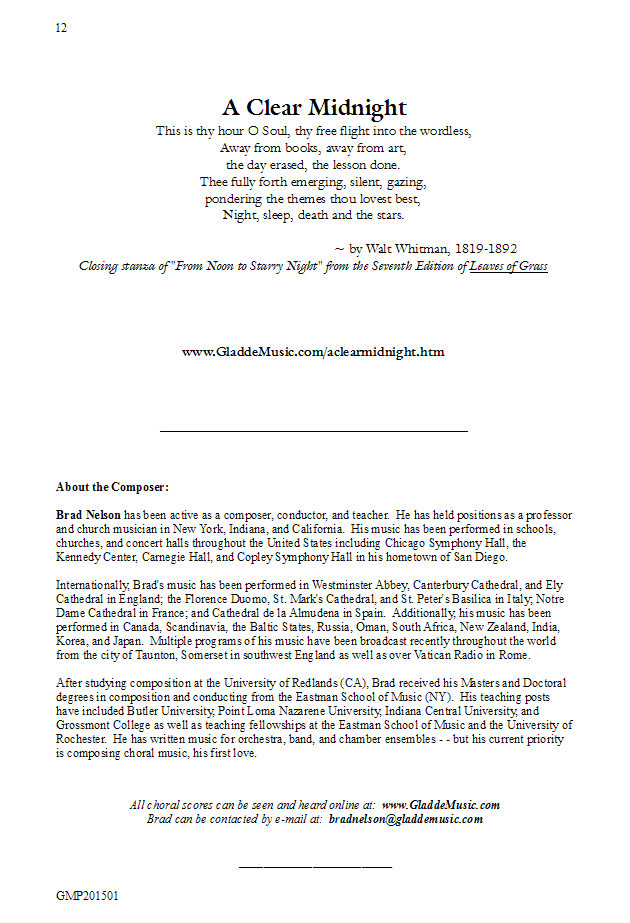
/2-kendrick bell.jpg)
